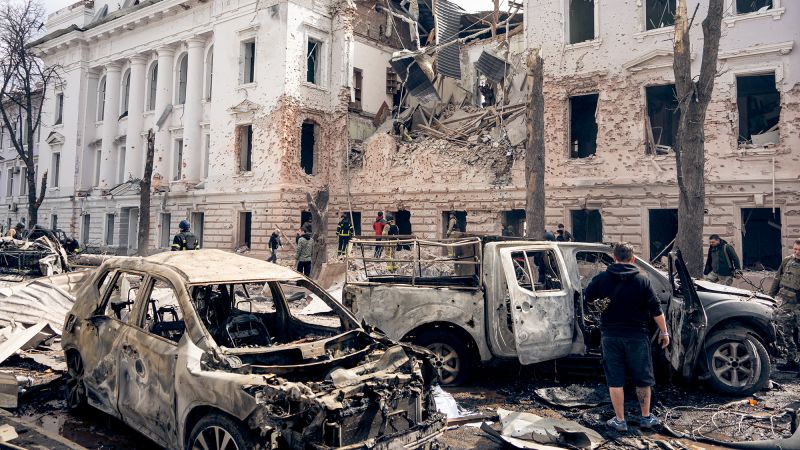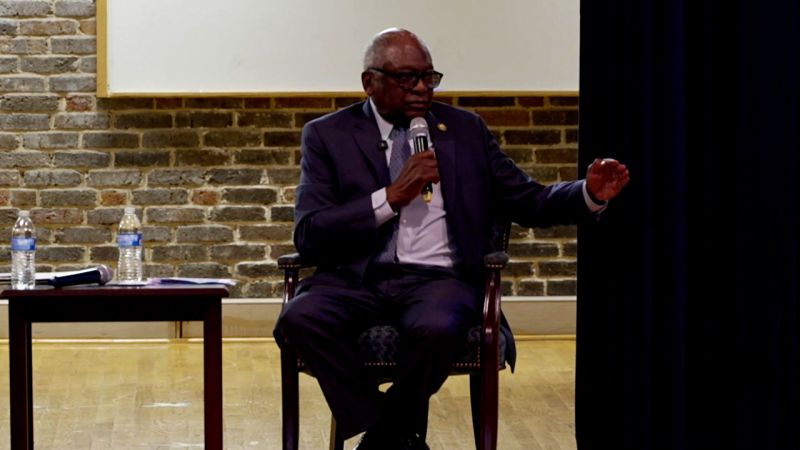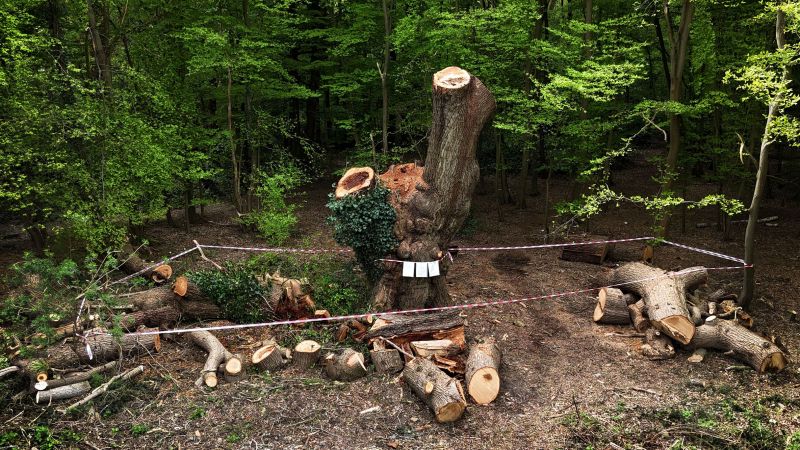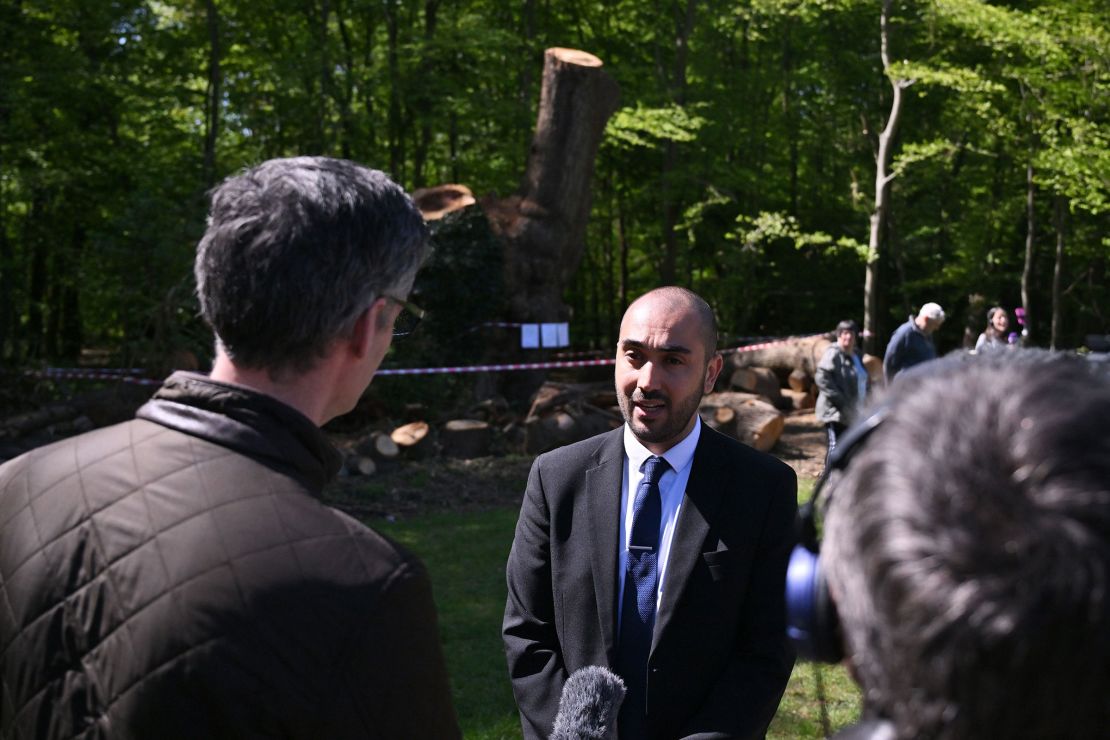CNN
—
“I was told they made a mistake.” This is the way US President Donald Trump characterized Russia’s “horrific” double-tap missile strike on central Sumy, Ukraine, on Saturday, which allegedly used cluster munitions to maximize casualties.
The Iskander missiles reportedly utilized are accurate, and the use of two of them could suggest a degree of purpose and malice, aimed at hitting first responders too as they rush in. It is unlikely the Kremlin saw the error of its ways – this tactic being now so common – and perhaps a sympathizer is instead excusing Russia to the US president.
The weekend’s strike was, to Ukraine’s allies, a gruesome reminder of Moscow’s true intent in its invasion: to terrify Ukrainians into submission. The target, Sumy, is also in Russia’s immediate crosshairs, as President Vladimir Putin claims to seek a buffer zone inside of Ukraine by pounding this thriving border city.
The attack also placed unwelcome emphasis on just how little fruit the White House’s relentless pursuit of diplomacy has borne. Trump said Friday on social media that Russia had to “get moving,” but provided no deadlines or explicit consequences if it did not, although secondary tariffs on its oil purchasers have been floated.
Trump has made similar comments before – admonishing Moscow for its onslaught on Ukraine’s civilians, while also expressing broader grief at the tragedy of war in general, rather than fury at the Kremlin’s specific massacres, say of nine children at a Kryvyi Rih playground days earlier.
Indeed, he later reached for what seems to be his comfort talking points. When seemingly cornered on the issue, Trump suggested – erroneously – Ukraine had in fact started the war. “Listen, when you start a war, you gotta know that you can win the war, right? You don’t start a war with someone who’s 20 times your size and then hope people give you some missiles,” he said, answering a question about Kyiv’s urgent requests for more Patriot missile defense systems.
The truth Trump may be reluctant to post about is that Russia’s diplomacy has predictably dissolved into a dizzying Catherine wheel of tangents. It generates the requisite light and noise, but is of little consequence, bar Moscow continuing to buy time and prosecute the war on its own terms.
American and Russian diplomats are now on a carousel of Moscow’s apparent design, with multiple tracks leaving scant chance of real progress. Trump’s foreign envoy Steve Witkoff intermittently flies to Russia, to presumably hear demands direct from the Kremlin, whose official called his Friday visit to St Petersburg “productive.” Higher-level American and Russian diplomats meet in Saudi Arabia to float ceasefire ideas and a wider detente, while lower-level diplomatic meetings began in the new venue of Turkey last week to address the technical details of embassies reopening.
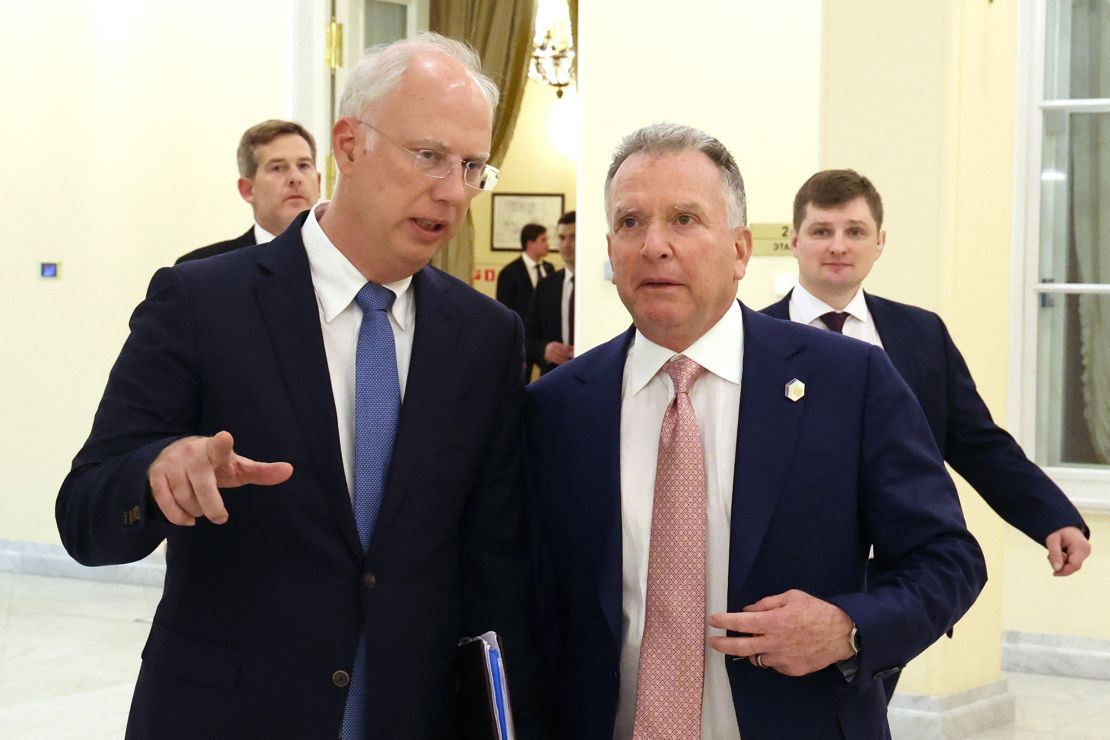
And there is more. The Americans and Ukrainians have been hammering out in Washington a viable way forward from a dense and corporate rare-earth minerals contract, drawn up (and perhaps only understood) by Delaware corporate lawyers, which seems, according to the last draft seen by CNN, to be almost entirely in the White House’s favor.
And there is a separate diplomatic US-Ukraine track over peace, also in Saudi Arabia, that has so far proposed a wide-ranging ceasefire that Russia has yet to agree to. Instead, a limited 30-day energy infrastructure ceasefire – chaotically birthed and barely adhered to – ends on Friday. This first test of diplomacy, seemingly dead on arrival, is somehow yet to cast future endeavors as problematic.
The above flow chart, or lapsed Venn diagram, has the singular unifying thread of the Trump administration seeking progress from multiple different dialogues it hopes will eventually congeal into a singular lasting peace. Five different, current conversations, and that is even if you don’t count the mostly silent role of Trump’s special envoy to Ukraine and Russia Gen. Keith Kellogg, or the intermittent but overarching influence that Putin-Trump phone calls take.
This disparate and confusing interface is, Moscow’s critics say, a standard Russian tactic to buy time while appearing engaged. The Trump administration brimmed with 24-hour to 100-day deadlines about peace prior to the rubber hitting the road. Now there is no deadline – or end to the metastasizing talks – in sight.
Why does Putin seek time? Because he believes Trump has been proven to be easily distracted and is interested in an easy win, but not a complex compromise. Putin also clearly believes this summer he can win a tangible victory on the front lines that will change the dynamic in talks.
His onslaught on Sumy is intended to buy Russia space on the border, but also drag Ukraine’s forces in. Russia is making slow yet discomforting progress to the south of Zaporizhzhia, an area where nearly two years ago its counteroffensive was meant to have broken through. One Ukrainian intelligence officer recently moved to near the city of Kharkiv described a front line quieter than expected, and anxiety as to what lies ahead.
Concerns are growing that Russia is amassing reinforcements, waiting for the ground to dry in May to escalate a spring offensive that Ukrainian officials say has already partially begun. Kyiv has hinted at an artillery ammunition shortage in the weeks ahead, and recent pledges by its allies may not have headed off that imminent crisis. It is going to be a very difficult summer for Ukraine.
This is the real rubber hitting the road. Moscow has invested all in a war in which it simply cannot afford anything less than victory. It does not see gain in forging a deal over frozen front lines now. The momentum – with a White House tearing up economic and security norms by the sheaf, and Ukraine struggling to meet manpower and resource needs – is day by day more in its favor. The Russians are stalling for time as they believe it is on their side.
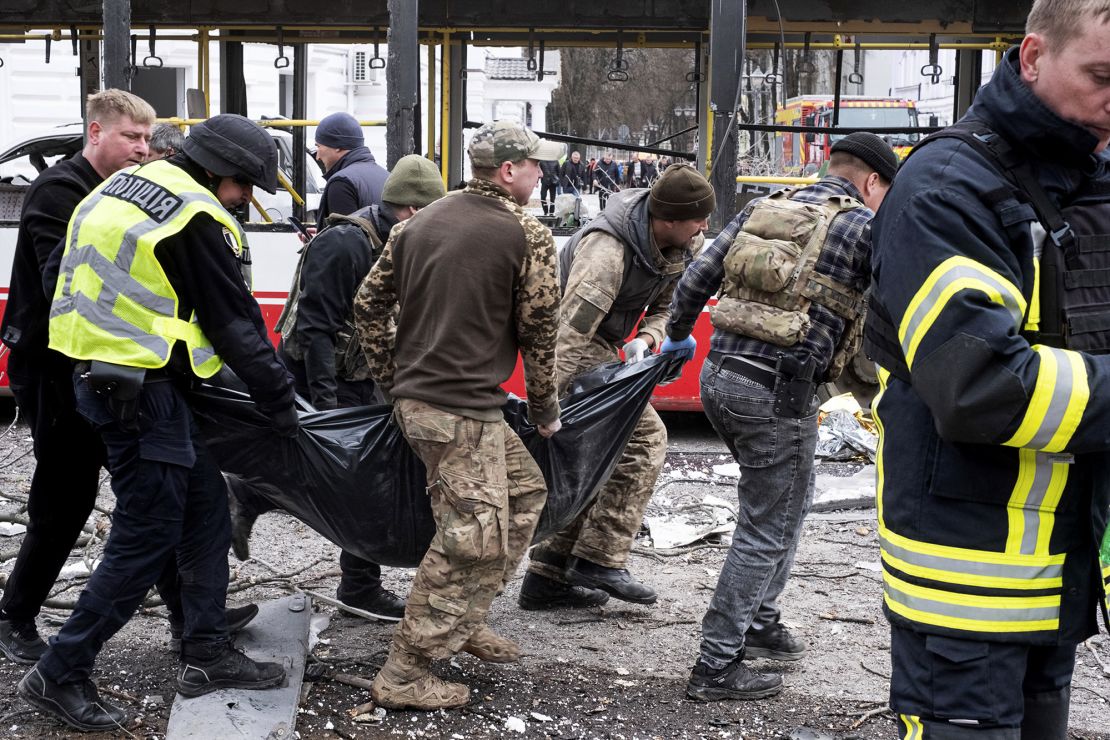
Their European allies are disconcertingly readying for two unpleasant potential futures. The first is the possibility of a Ukrainian collapse and the need for NATO’s European members to hold back the Russians without American assistance. This is a more remote likelihood, but the undertone of preparations across the continent. The second possibility is more feasible and public: the British and French are spearheading preparations for a “reassurance force” to protect any ceasefire. The noise, and planning, serves two purposes: it allows Kyiv to agree to diplomacy knowing it has some security guarantees in place. And it partially embarrasses Moscow into stonewalling a peace plan that is increasingly ready to roll.
But with each rotation of the diplomatic Catherine wheel, the terms of actual peace become more dizzying. Putin seems less willing to offer even a partial pause as he believes ultimately Trump is toothless and will not punish him effectively for refusing this détente.
Trump said of US talks with Russia and Ukraine at the weekend: “You know, there’s a point at which you have to either put up or shut up.” His problem is that both he and the Kremlin are happy to keep talking. And neither wants to put up either: Trump is reluctant to impose harsh sanctions and disrupt his relationship with Moscow, and the Kremlin seems to have no desire to stop the war.
Trump added: “We’ll see what happens, but I think it’s going fine.” Ukraine must be left hoping he does not mean simply that the country’s fate will be permanently eclipsed by another crisis.

